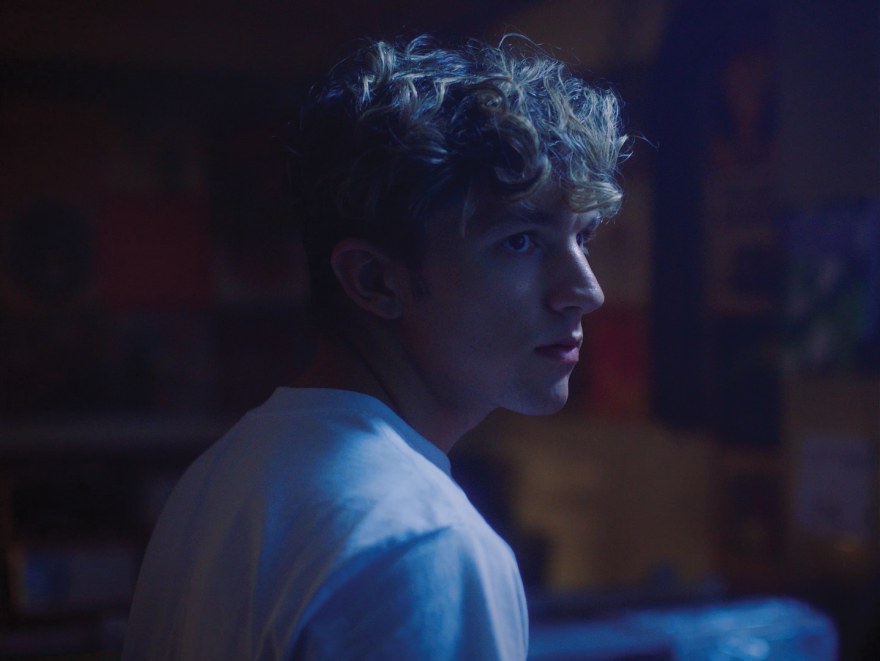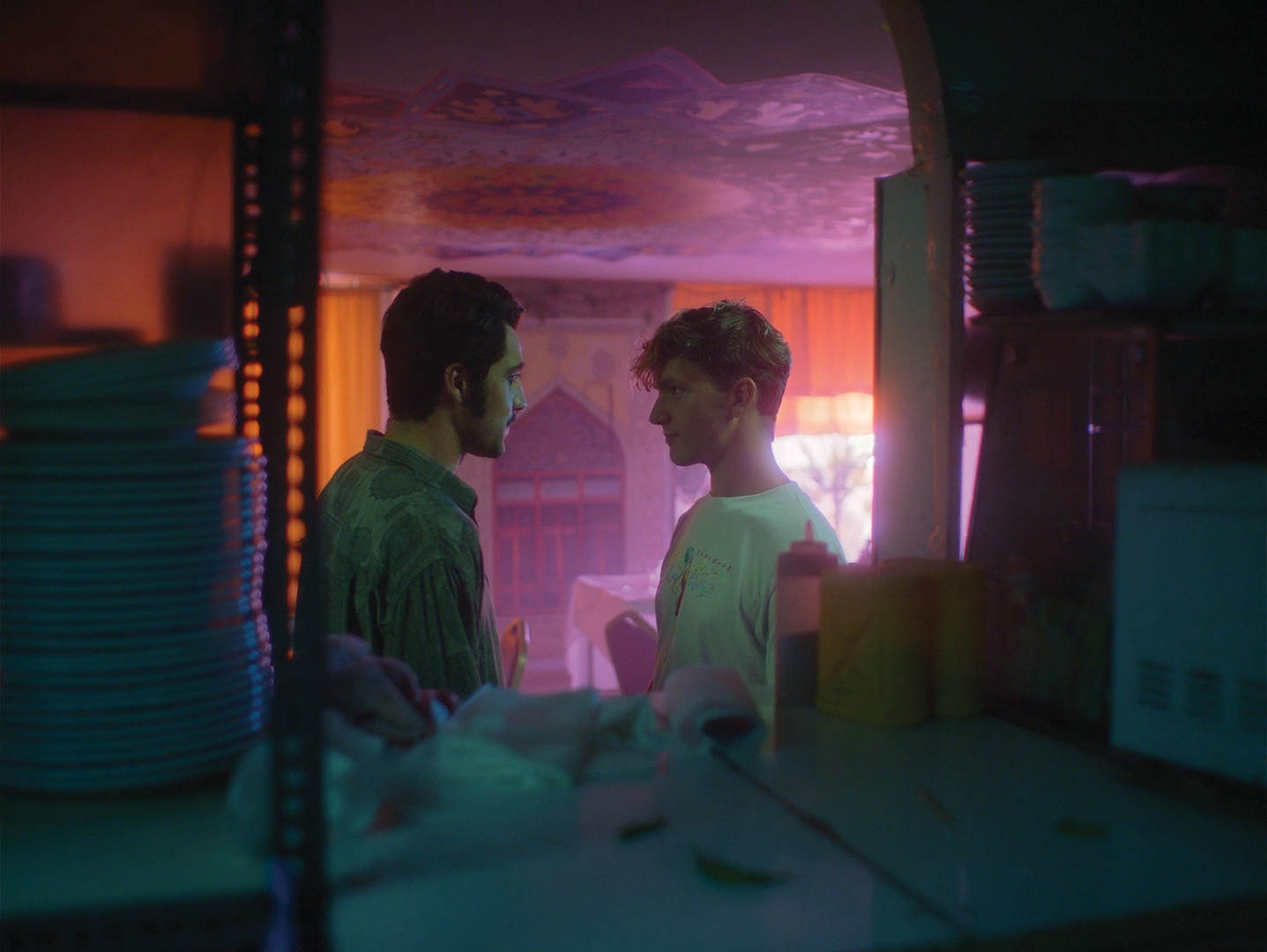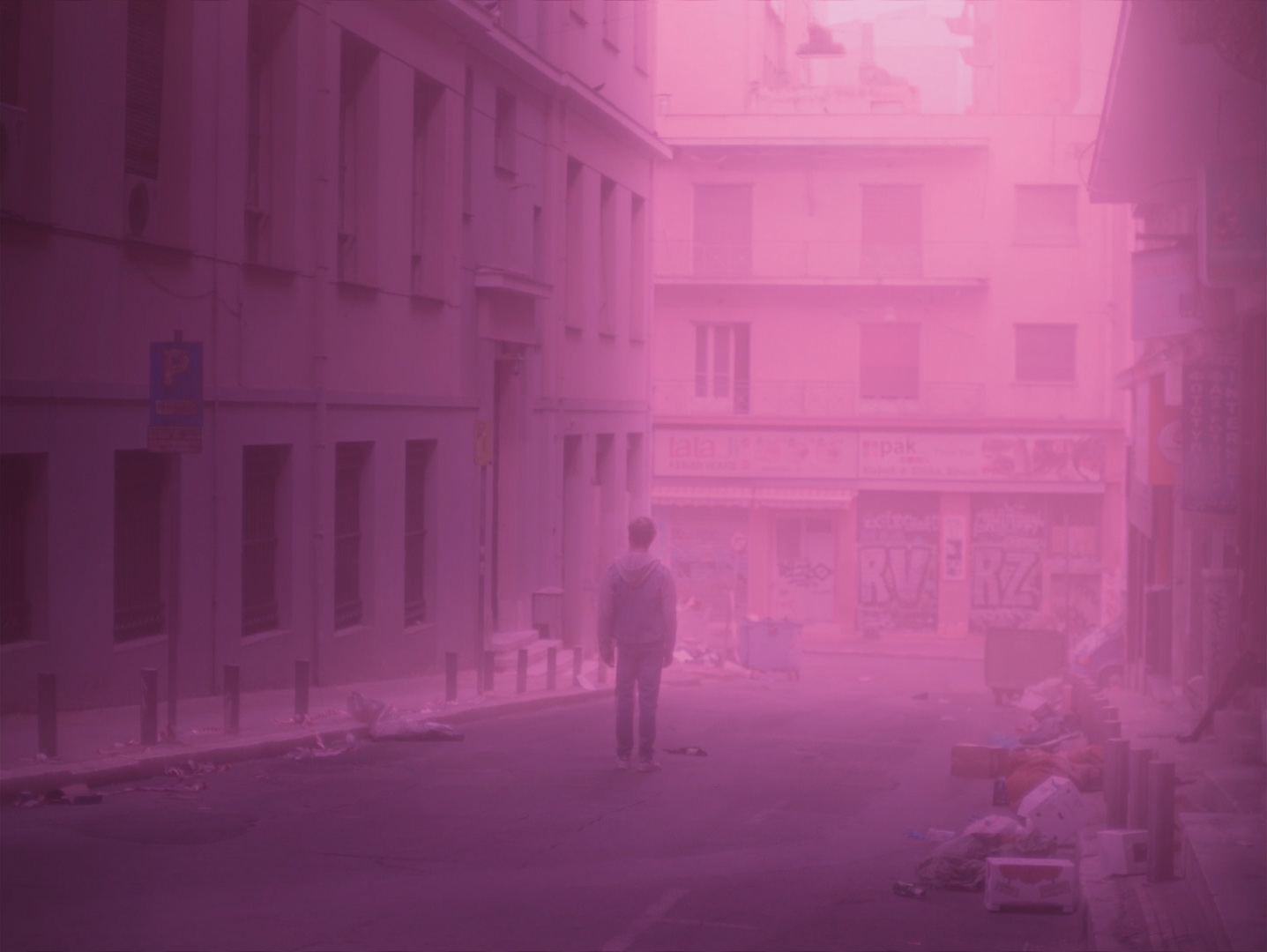Lunch with Escaping the Fragile Planet
Interview with Thanasis Tsimpinis, director of Escaping the Fragile Planet
What drew you to this story that focuses on an encounter between two men just before the end of the world?
Τhere are not quite as many boy-meets-boy (or girl-meets-girl) tales out there. And like in my previous short film Fawns, I like creating queer characters, although I choose to not necessarily focus on their sexuality (or any sort of drama surrounding it). This choice might look irrelevant to the story, but that’s the idea; to normalize queer love. My vision with this film was to narrate a very casual date between two strangers that seek this kind of innocent intimacy. Then, I came up with this idea about the end of the world, which I believe is romanticizing their effort to spend some time together even more, despite whatever surreal thing is happening around them. What’s funny is that, what looked like a sci-fi dystopia in my head (people wearing masks in empty streets), while writing the script back in 2017, is pretty much our everyday life now. So, I believe there are quite a few moments in the film that will feel familiar to the viewers, and hopefully relatable.
Did you have a cast in mind? How did you approach casting?
We discussed a lot about the cast with Phaedra Vokali, one of the producers. She suggested Michail Tabakakis and Nikos Lekakis from the very beginning and to be honest, they clicked right away for me. I kept going through the archives for a while, but I couldn’t help thinking of these two. At some point, I decided to follow my gut and we called them for an acting test to explore their chemistry together. They were asked to improvise in three acts that involved them flirting on the spot. In the first one, they were strangers stuck on an elevator. In the second one, they were acquaintances bored at a pool party. In the third one, they were a couple that couldn’t decide on a film to watch for the night. The result was so fresh and fun that I realized I wouldn’t need to see anybody else. I could definitely see the spark between them and their personalities actually matched the characters. We worked on most parts of the dialogue together, during the rehearsals. But we decided to leave some crucial parts unrehearsed, like the kissing scene, to ensure a raw feeling to the moment. Another fun fact: the magic trick Michail does in one scene, was something he already knew and was also pretty much impromptu.
What does the pink fog represent?
The fog is basically a metaphor for time. There is always a ticking clock for every romance, every relationship, life in general. For them, it comes with the end of the world, but what they decide to do with it, is actually brave to me. Living in the moment has always been a brave act. Why pink? It’s a bright, warm color, very reminiscent of a sunset. It can look romantic and toxic, at the same time. So, I thought it would be fit for the last day of the world (or a gay romance, for that matter). There is also this urban legend that air pollution enhances the beauty of a sunset, creating gorgeous, colorful skies. But of course, as most tales, its symbolism is open to interpretation and that’s the best thing about it.
How did you build the film’s slow, peaceful pace?
First of all, the editing of this film was a personal dare for me, since this marks the first short film of mine edited by someone else. So, kudos to the amazing editor Smaro Papaevangelou; for not only getting me out of my comfort zone, but also doing an amazing work that she won an award for, at the 43rd Drama International Short Film Festival. This film was also my first attempt with this kind of format, in terms of duration and linear narration of events. Admittedly, our goal was to keep the pace slow and effortlessly peaceful for the indoors, in order to create a contrast with what was hinted to be building up, outdoors. The actors majorly contributed to that, as we tried to follow (or even underline) their own calm tempo while interacting, with as less cuts as possible, to make each scene feel more natural and therefore, realistic. And that was my vision from the beginning, to keep a minimalistic approach to the narration, contrary to the dreamlike visuals.
What do you think the future holds for short films?
I am getting more and more inspired by the short films that keep coming out. Short films have always been a field experimenting with many formats. But now, especially production value-wise, we are miles away from what it used to be, say five years ago. And I think that the audiences seem to enjoy them more, since the films meet their high standards. I also have to say that I am very proud of Greek short films (and features) having a strong presence in major festivals abroad, the last few years. So, I can only be excited with what the future holds! Now, regarding the online viewing that also helped reaching bigger audiences, I believe it’s a great medium, especially for the times that we live in, but complementary. Quoting Pedro Almodovar, “Some things can only be discovered on the big screen, in the dark with people you don’t know.”
If we were to go back into lockdown, what cultural delights would you recommend to alleviate our boredom?
Online films (especially old ones from the must-watch-lists). Online plays. Online concerts. And dare I say video games? I do believe that some of them can offer quite the cinematic experience, like the recent example of The Last of Us Part II.
Escaping the Fragile Planet is part of International Competition I12.










